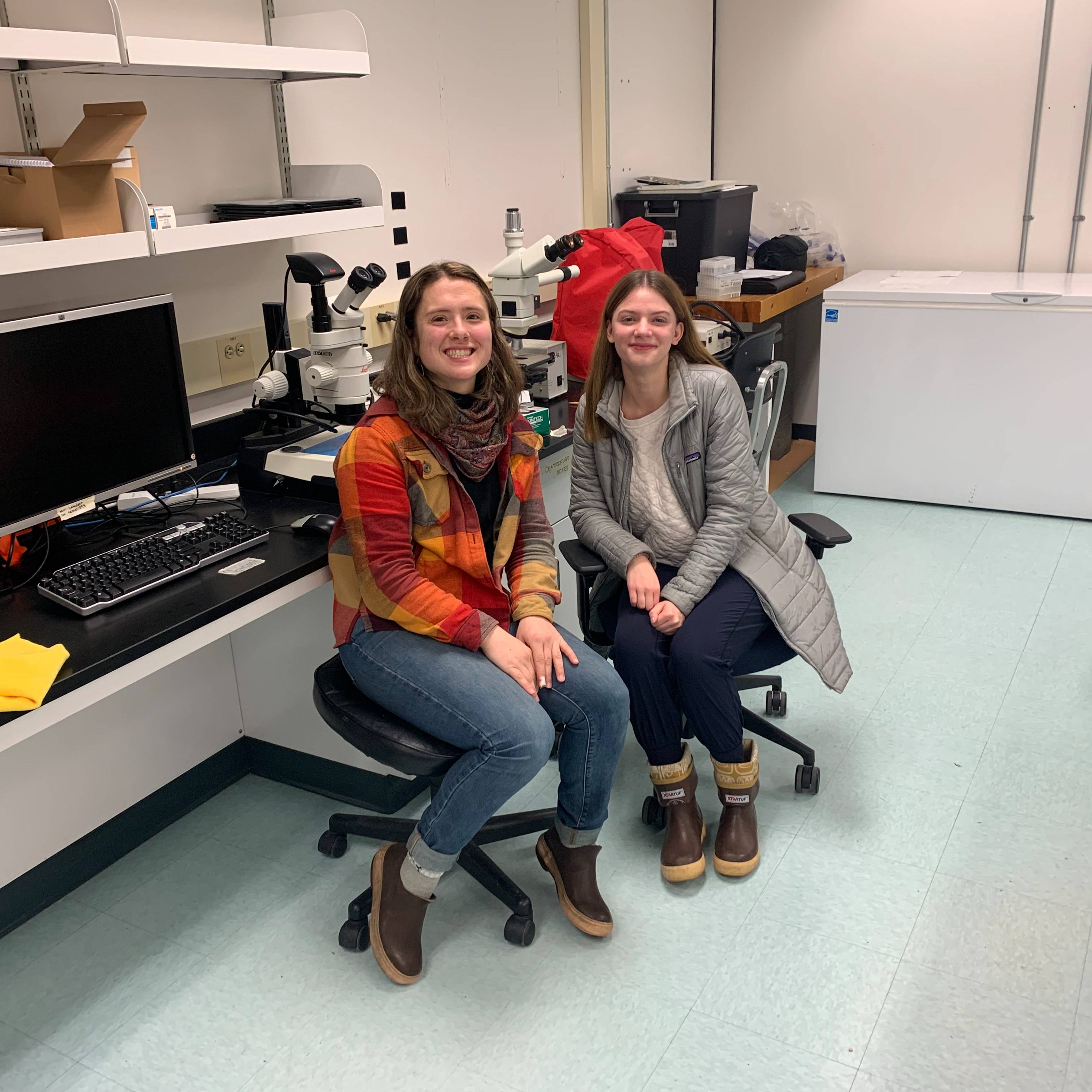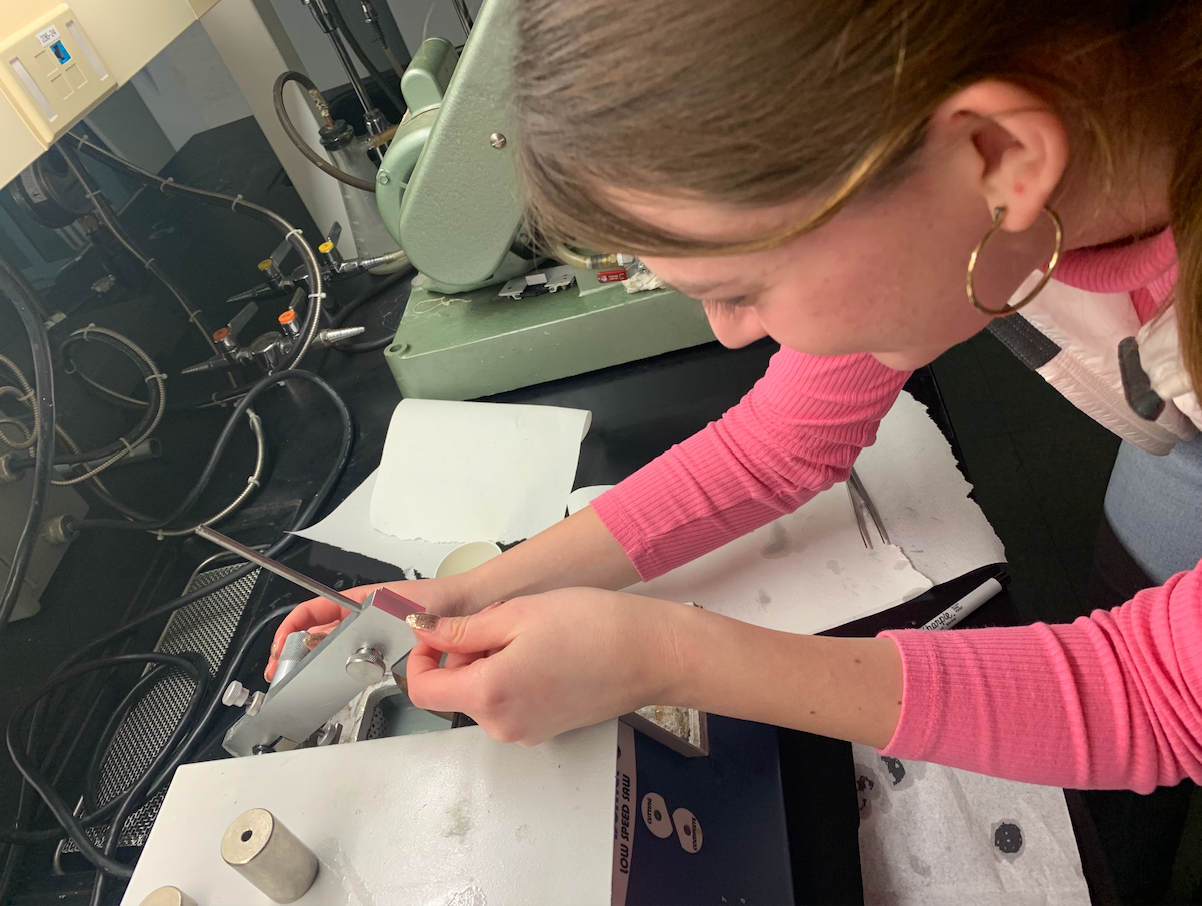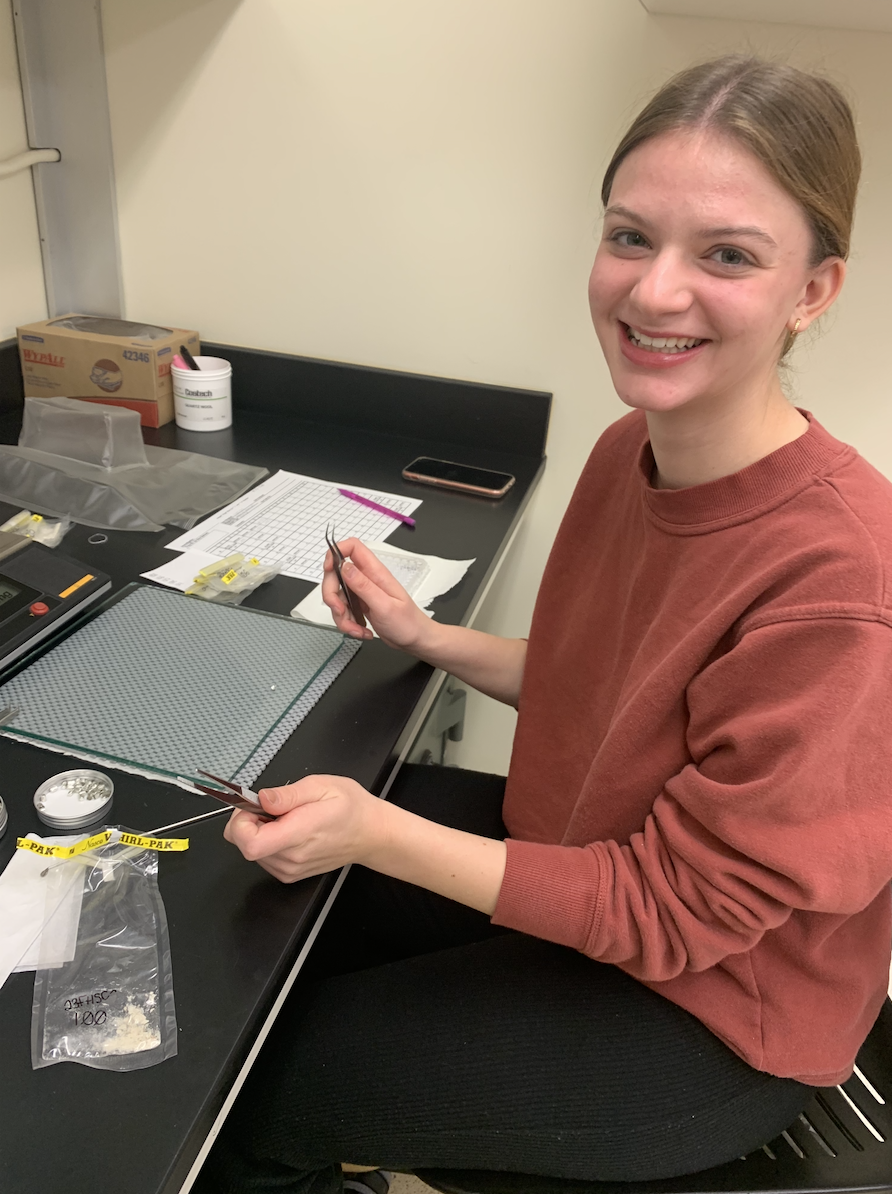Erica Ebert

Erica Ebert, Fisheries graduate student, is a Mentor Award recipient and will be working with Amelia Knavel, Wildlife Biology and Conservation undergraduate, throughout the 2023-2024 academic year.
Erica and Amelia's project, Analysis of Stable Isotopes in the Fourhorn Sculpin to Determine Foraging and Habitat Strategies, will analyze multiple different type of stable isotopes to expand the knowledge of the Fourhorn Sculpin (Myoxocephalus quadricornis) found along the Beaufort Sea coast near Prudhoe Bay, Alaska. By looking at bulk carbon and nitrogen stable isotope ratios, they hope to gain an understanding of the food web dynamics and trophic position of the Fourhorn Sculpin in the nearshore habitat of the Beaufort Sea. Furthermore, through the use of strontium stable isotope analysis of the sculpins’ otoliths (or ear bones), Erica and her student hope to be able to determine if individuals are moving throughout their lives or if they are sedentary.
How is your project going so far this semester?
Erica: The project is making great progress this semester! We have been able to accomplish so much this year working together in the lab, from preparing muscle samples for bulk carbon and nitrogen stable isotope ratio analysis to prepping otoliths for strontium stable isotope analysis, each week is a new step in the process that gets us closer to our goal. It has been really nice working alongside someone in the lab and sharing in the frustrations and successes of lab work. I’m looking forward to starting to look at the data we have gathered so far and to have someone to discuss the preliminary results with right away.
How did you find out about URSA and what encouraged you to submit an application for funding?
Erica: I found out about URSA through fellow Master of Fisheries graduate students that had mentored in the past. It seemed like a great opportunity to get some extra funding as well as the extra experience of mentoring an undergraduate student in research. I always wished I had gotten more involved in different research projects as an undergraduate student, so I thought being able to aid in helping a student get hands on experience would be very rewarding. Doing well in coursework is always beneficial, but having the experience of doing certain lab work on a resume can be really helpful once an undergraduate student enters the workforce after college. Also, it’s been very helpful in my own research needs by having some helpful hands.

How has your undergraduate mentoring experience been thus far?
Erica: My mentoring experience thus far has been great, my student is always ready to learn something new and keeps a positive attitude, even when it’s the third week of polishing otoliths in a row. It’s been satisfying teaching someone else new lab skills as I hone my own techniques. It has been equally as nice to talk about school life in general and to be able to offer advice in courses and finding summer internships. Explaining and demonstrating each step of my lab processes has also allowed me to reflect on how to be the more efficient at each point in the work. I’ve quickly learned how time spent in the lab can not only help improve the efficiency of tasks, but also make the time more enjoyable.
If you could share one piece of advice with prospective URSA Mentors, what would you say?
Erica: Do not underestimate what you can do, as well as what your mentee can do. It is easy to slip in your own lab routine and working solo, especially in graduate school. But I find knowing that I’ll have helping hands and someone to work with each week for a few hours makes the lab seem less dark on those windowless winter days and we have been able to complete so much! Most students are wanting to learn skills they can carry over to future work or their own research, which makes mentoring someone interested in the project even more satisfying.

How did you come to work with your mentor on this URSA project in particular?
Amelia: I first heard about Erica’s project through an email chain asking if anyone would be interested in helping with her URSA project. I was hesitant to apply because I am a wildlife biology major, and this was a fisheries and ocean sciences related project. I assumed it would be a long shot if I was to be picked for this, but I figured there would be no harm in trying! Luckily, I got to meet with Erica the next day and she was able to help guide and mentor me into the work we are currently doing in the lab.
How does your work on this URSA project relate to your career or personal goals?
Amelia: Working on this URSA project helped me to gain confidence in my knowledge and lab abilities. From my time working on the URSA project, I have come to realize that participating in a lab for classes and working in a lab for research are two very different things. I had always dragged my feet about labs but after this experience, I have been able to gain a new fondness for them and I am excited to work harder in both aspects! Getting excited about labs again was a very big personal goal for me and I am thankful for the opportunity URSA has given me. The skills and knowledge I have gained in these short couple of months will benefit me for years to come, regardless of what I choose to pursue in the future.
If you could share one piece of advice with other undergraduate students looking to join a mentored project on campus, what would you say?
Amelia: I would say that you should not be afraid of trying something out of your comfort zone and that you shouldn’t be afraid to ask questions. It’s easy to talk yourself out of something if you have not done anything similar to it, but this is how you learn new skills and grow confident in your abilities. I would also like to acknowledge the fact that even if a project doesn’t technically fall under the umbrella of your major, but you are still interested in it then you should not be afraid of applying and seeing where things take you!


